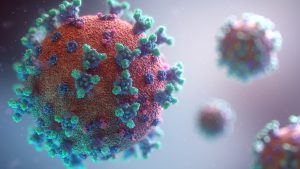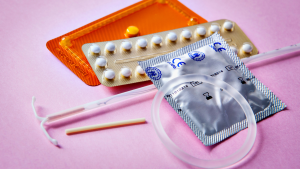Sexually transmitted diseases, also called STD, can affect many parts of your life, including your ability to have a baby. This article will explain how STDs can make it harder to get pregnant and what you can do to lower the risks.
STDs and Fertility
Some STDs can harm your body, making it tougher to get pregnant. Here are some common STD that can affect your ability to have a baby:
- Chlamydia: This infection can cause swelling and scars in the tubes that carry eggs. If not treated, it can cause lasting damage.
- Gonorrhea: Like chlamydia, gonorrhea can cause scars and blockages in the reproductive system, stopping sperm from meeting the egg.
- Syphilis: This infection can spread to other parts of your body, including the reproductive organs. It can cause problems during pregnancy and increase the risk of miscarriage.
- HPV (Human Papillomavirus): Some types of HPV can lead to cervical cancer, affecting a woman’s ability to get pregnant and carry a baby to term.
- Herpes: Herpes does not directly cause infertility, but it can cause painful sores that make sex uncomfortable, affecting a couple’s chances of getting pregnant.
Can STD Cause Infertility?
Yes, STD can make it harder or impossible to have children. If left untreated, infections can cause long-term damage. For example, untreated chlamydia and gonorrhea can lead to a condition called pelvic inflammatory disease (PID), which can cause lasting damage to the reproductive organs.
Managing the Risks
Here are some ways to lower the risks of STD and protect your ability to have children:
- Regular Testing: Get tested for STD regularly, especially if you have multiple sexual partners. Early detection can prevent long-term damage.
- Safe Sex Practices: Use condoms to lower the risk of getting an STD. Having fewer sexual partners also lowers the risk.
- Communication: Talk openly with your partner about STDs and sexual health. Make sure both of you are tested and know your status.
- Medication: If you have an STD, follow your doctor’s treatment plan. Medicines can often cure or manage the infection, lowering the risk of complications.
- Healthy Lifestyle: Eating a balanced diet and exercising regularly can support your overall reproductive health.
Popular Medications
Here are some common medicines used to treat STDs:
- Azithromycin: Used to treat chlamydia and gonorrhea.
- Doxycycline: Used for chlamydia, gonorrhea, and syphilis.
- Valacyclovir: Used to manage herpes outbreaks.
- Podofilox: A cream for genital warts caused by HPV.
- Metronidazole: Used to treat trichomoniasis, another STD that can affect fertility.
Conclusion
If you are worried about STDs and your ability to have children, talk to your doctor. They can provide testing, treatment, and advice on how to protect your health when having babies. STDs can seriously affect your ability to get pregnant, but with the right care from a doctor, you can manage the risks. Stay informed about STDs, practice safe sex, and seek medical help if you think you have an infection. By taking these steps, you can protect your ability to have kids and overall health.
FAQs
- Can STDs cause infertility?
- Yes, STDs like chlamydia and gonorrhea can cause infertility by damaging the tubes that carry eggs.
- Which STDs are most likely to affect fertility?
- Chlamydia, gonorrhea, and syphilis are some of the STDs that are most likely to impact fertility.
- Can men also become infertile due to STDs?
- Yes, STDs can affect men’s ability to have babies by causing infections and blockages in the parts of their body.



